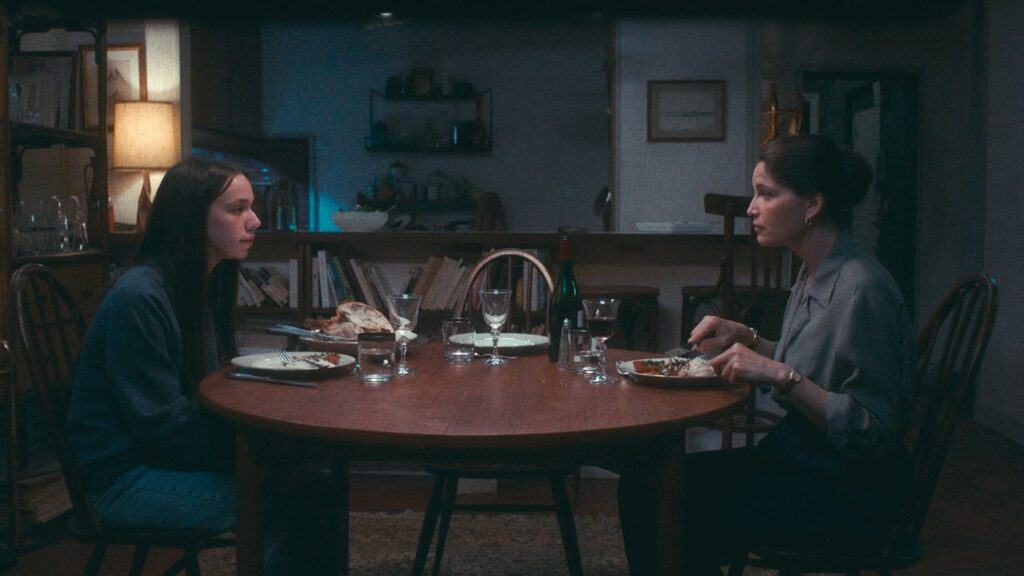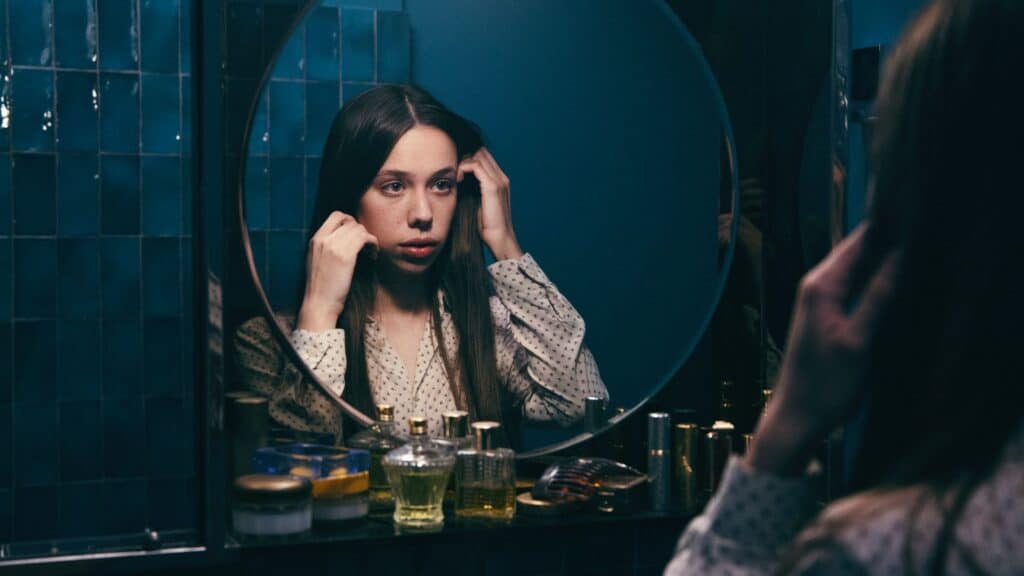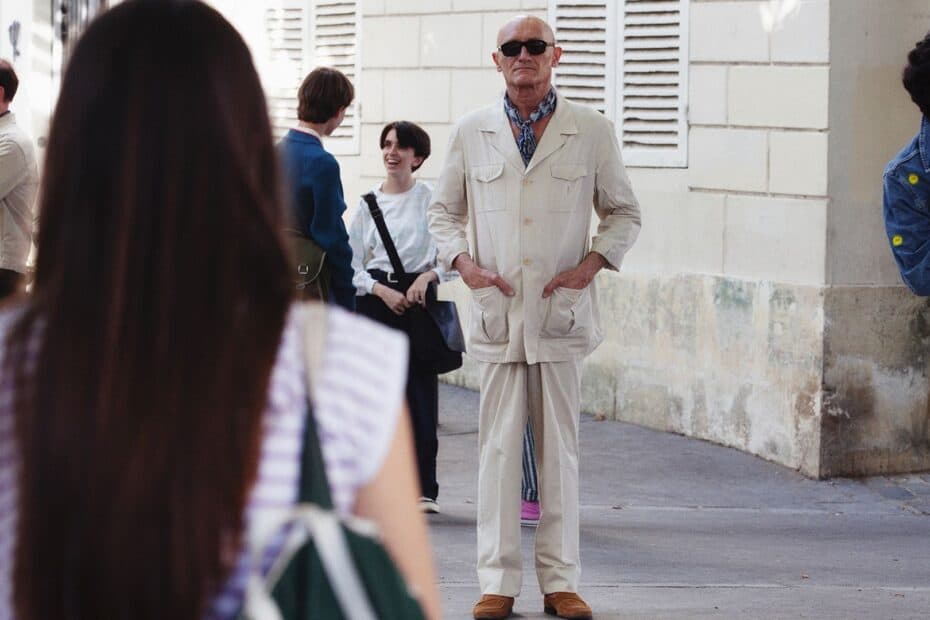Consent (Le Consentement) is Vanessa Filho’s second film after Angel Face (Gueule d’ange 2018). It had its international premiere at the Black Nights Film Festival in Tallinn. It’s based on the eponymous autobiographical book by Vanessa Springora, which details her meeting with a 50-year-old writer in 1985. The man in question, Gabriel Matzneff, had a history of abusing underage boys and girls. This was something he bragged openly about, and the topic was the bulk of his literary career, which brought him great esteem in France. Springora became his lover and muse and was under his influence even though the environment around her tried to warn her. Vanessa seems unable to escape this predator, who skillfully traps young girls.
We follow Vanessa (Kim Higelin) at school, where her classmates are making fun of her for being involved with a pedophile. Things are not ideal at home either. Her single mother (Laetitia Casta) has her own problems, and the relationship with the daughter is strained. When I interviewed Vanessa Filho, she explained that Matzneff often preyed on girls with single mothers and that the latter became collateral damage. Higelin appears in virtually every shot in a style that the director has characterized as subjective emotional realism. Matzneff is portrayed by Jean-Paul Rouve, which is a departure for an actor more associated with comedic parts. Everyone, not least Casta, is perfect in their respective roles.

The creepiness of the relationship is abundantly apparent, not least when Vanessa vehemently tries to defend the liaison with her friends and family. Even more scary is the way that Matzneff was celebrated by the culture community. He wrote diaries not only about his abuse of underage French girls but also documented trips to Asia, describing relationships with children as young as eight years old. These works brought him not only reverie but also prestigious awards, as well as a grant from the French state. When Springora’s book was released in 2019, the state decided to withdraw its grant. It also led publishers like Gallimard to withdraw their marketing services for some of his most egregious works.
Age of Consent
The film moves through time, and in a scene set in 1990, it shows a broadcast of the famous cultural TV show Apostrophes, where Matzneff appeared. Everyone in the studio seems to respect him, with one exception: The Canadian writer Denise Bombardier, who bravely criticised him strongly with harsh words. This caused her to be harassed in the media and even in public. Tellingly, she was the only non-French person in the studio. Another result of Springora’s book was that the age of consent was changed. This happened as late as 2020.

Filho tells the story with great compassion, and it’s obvious that she focuses on the direction of the thespians, all of which are really good, from the main actors to the smaller parts. From a cinematic point of view, she teamed up once again with Guillaume Schiffman. The film is shot digitally but with Cooke optics lenses, specifically during the first part. The cinematography is serviceable without drawing attention to itself. For people like me who remember the eighties fondly as a free decade, Consent is a chilling reminder of the darker sides of the era, even if the cultural world in France was extreme in the manner it rewarded transgressions.
The director will work with Kim Higelin once again on her upcoming project, and it will be interesting to see what their collaboration will bring.
Seen at the main competition at the Black Nights Film Festival in Tallinn.

